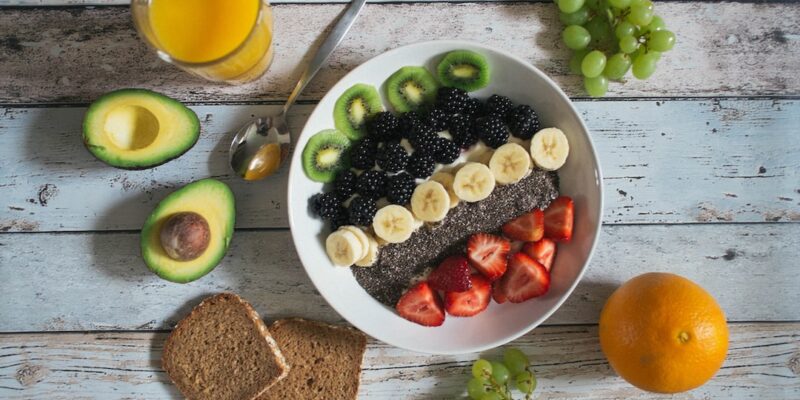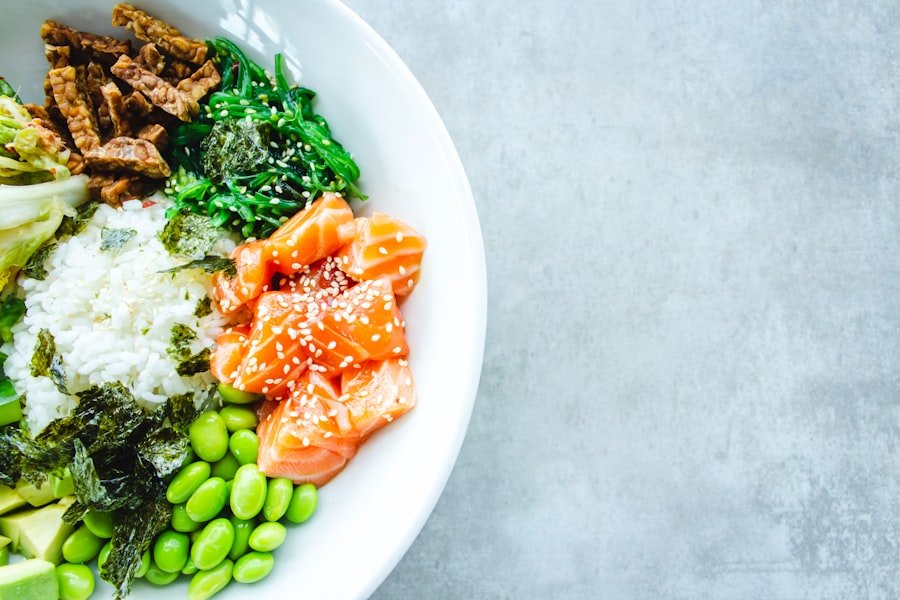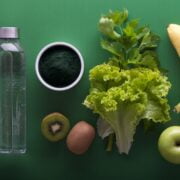
The Ultimate Guide to Vegan Nutrition: Tips and Tricks for a Balanced Plant-Based Diet
Veganism is a lifestyle choice that has been gaining popularity in recent years. It involves abstaining from the use of animal products, including meat, dairy, eggs, and honey. Many people choose to follow a vegan diet for ethical reasons, as they believe it is wrong to exploit animals for food. Others choose veganism for environmental reasons, as animal agriculture is a major contributor to greenhouse gas emissions and deforestation. Additionally, there is a growing body of evidence suggesting that a plant-based diet can have numerous health benefits.
Proper nutrition is essential for everyone, regardless of their dietary choices. However, it is especially important for vegans to ensure they are getting all the nutrients they need. A well-planned vegan diet can provide all the necessary nutrients for optimal health and wellness. It is important to understand the basics of vegan nutrition in order to make informed choices about what to eat.
Key Takeaways
- Vegan nutrition requires careful planning to ensure adequate intake of essential nutrients.
- Plant-based eating can provide all necessary nutrients, including protein, carbohydrates, fats, vitamins, and minerals.
- Protein sources for vegans include beans, lentils, tofu, tempeh, nuts, and seeds.
- A balanced vegan diet should include a variety of carbohydrates and healthy fats, such as whole grains, fruits, vegetables, and plant-based oils.
- Vegans may need to pay special attention to getting enough iron and calcium, but these nutrients can be obtained through plant-based sources and supplements.
The Basics of Plant-Based Eating
A plant-based diet is one that focuses on whole, unprocessed plant foods such as fruits, vegetables, whole grains, legumes, nuts, and seeds. It excludes or minimizes the consumption of animal products and processed foods. Plant-based eating has been associated with numerous health benefits, including lower risk of heart disease, type 2 diabetes, obesity, and certain types of cancer.
Plant-based foods are rich in fiber, vitamins, minerals, and antioxidants. They are also generally lower in saturated fat and cholesterol compared to animal products. By focusing on plant-based foods, individuals can increase their intake of these beneficial nutrients while reducing their intake of harmful substances.
Some examples of plant-based foods include:
– Fruits: apples, bananas, oranges, berries
– Vegetables: broccoli, spinach, kale, carrots
– Whole grains: brown rice, quinoa, oats
– Legumes: beans, lentils, chickpeas
– Nuts and seeds: almonds, walnuts, chia seeds, flaxseeds
Essential Nutrients for a Vegan Diet
A vegan diet can provide all the essential nutrients needed for overall health and wellness. These include protein, carbohydrates, fats, vitamins, and minerals. It is important to ensure that you are getting enough of each of these nutrients in order to maintain optimal health.
Protein is an essential nutrient that plays a crucial role in building and repairing tissues, producing enzymes and hormones, and supporting a healthy immune system. While animal products are often thought of as the primary source of protein, there are many plant-based sources of protein as well. These include legumes (such as beans, lentils, and chickpeas), tofu and tempeh, quinoa, nuts and seeds, and whole grains.
Carbohydrates are the body’s main source of energy. They are found in a wide variety of plant-based foods, including fruits, vegetables, whole grains, and legumes. It is important to choose complex carbohydrates (such as whole grains) over simple carbohydrates (such as refined sugars) for sustained energy and stable blood sugar levels.
Fats are an important part of a healthy diet. They provide energy, help absorb fat-soluble vitamins (such as vitamins A, D, E, and K), and support brain function. Plant-based sources of healthy fats include avocados, nuts and seeds, olive oil, and coconut oil.
Protein Sources for Vegans
| Protein Source | Protein Content (per 100g) | Calories (per 100g) | Fat Content (per 100g) |
|---|---|---|---|
| Lentils | 9g | 116 | 0.4g |
| Chickpeas | 8.9g | 364 | 6g |
| Quinoa | 4.4g | 120 | 1.9g |
| Tempeh | 19g | 193 | 11g |
| Tofu | 8g | 76 | 4.8g |
| Seitan | 25g | 370 | 2g |
Protein is often a concern for those following a vegan diet, as it is commonly associated with animal products. However, there are many plant-based sources of protein that can easily meet the recommended daily intake.
Legumes are an excellent source of protein for vegans. They include beans (such as black beans, kidney beans, and chickpeas), lentils, and soy products (such as tofu and tempeh). These foods are not only high in protein, but also provide other important nutrients such as fiber, iron, and zinc.
Quinoa is a complete protein, meaning it contains all nine essential amino acids that the body needs. It is also a good source of fiber and other nutrients such as magnesium and iron.
Nuts and seeds are another great source of protein for vegans. They can be eaten on their own as a snack or added to meals and recipes. Some examples include almonds, walnuts, chia seeds, and flaxseeds.
It is important to note that while plant-based proteins can provide all the necessary amino acids, they may be lower in certain amino acids compared to animal proteins. To ensure you are getting a complete range of amino acids, it is recommended to combine different plant-based protein sources throughout the day. For example, you could have beans with rice or quinoa, or pair tofu with vegetables and whole grains.
Carbohydrates and Fats for a Balanced Vegan Diet
Carbohydrates are an important part of a balanced vegan diet. They provide energy and are found in a wide variety of plant-based foods. It is important to choose complex carbohydrates over simple carbohydrates for sustained energy and stable blood sugar levels.
Complex carbohydrates are found in whole grains (such as brown rice, quinoa, and oats), legumes (such as beans and lentils), and starchy vegetables (such as sweet potatoes and corn). These foods are high in fiber, which helps regulate blood sugar levels and promote feelings of fullness.
Simple carbohydrates, on the other hand, are found in refined sugars and processed foods. These should be limited in a healthy vegan diet, as they can cause spikes in blood sugar levels and contribute to weight gain.
Fats are also an important part of a balanced vegan diet. They provide energy, help absorb fat-soluble vitamins, and support brain function. It is important to choose healthy sources of fats, such as avocados, nuts and seeds, olive oil, and coconut oil.
Vitamins and Minerals for Vegans

Vitamins and minerals are essential for overall health and wellness. While a well-planned vegan diet can provide all the necessary nutrients, there are a few vitamins and minerals that vegans should pay extra attention to.
Vitamin B12 is one nutrient that is often lacking in a vegan diet, as it is primarily found in animal products. It is important for nerve function, DNA synthesis, and the production of red blood cells. Vegans can obtain vitamin B12 through fortified foods (such as plant-based milks, breakfast cereals, and nutritional yeast) or by taking a supplement.
Calcium is another nutrient that vegans should pay attention to, as it is commonly associated with dairy products. However, there are many plant-based sources of calcium as well. Some examples include leafy green vegetables (such as kale and broccoli), tofu made with calcium sulfate, fortified plant-based milks, and almonds.
Iron is an essential mineral that plays a crucial role in transporting oxygen throughout the body. While iron from plant-based sources is not as easily absorbed as iron from animal products, it can still be obtained through a well-planned vegan diet. Good sources of plant-based iron include legumes (such as beans and lentils), tofu, spinach, quinoa, and fortified breakfast cereals.
How to Get Enough Iron on a Vegan Diet
Iron is an important nutrient for vegans to pay attention to, as it is commonly associated with animal products. However, there are many plant-based sources of iron that can easily meet the recommended daily intake.
Legumes are a great source of iron for vegans. They include beans (such as black beans, kidney beans, and chickpeas), lentils, and soy products (such as tofu and tempeh). These foods not only provide iron, but also other important nutrients such as protein and fiber.
Leafy green vegetables are another good source of iron for vegans. Spinach, kale, and Swiss chard are all high in iron. It is important to note that the iron in plant-based foods is not as easily absorbed by the body as the iron in animal products. To increase iron absorption, it is recommended to consume plant-based sources of iron with foods high in vitamin C, such as citrus fruits or bell peppers.
Fortified breakfast cereals can also be a good source of iron for vegans. Many brands fortify their cereals with iron to help meet the recommended daily intake. Be sure to check the label to ensure it is vegan-friendly.
Tips for Boosting Calcium Intake on a Vegan Diet
Calcium is an important nutrient for vegans to pay attention to, as it is commonly associated with dairy products. However, there are many plant-based sources of calcium that can easily meet the recommended daily intake.
Leafy green vegetables are a great source of calcium for vegans. Some examples include kale, broccoli, and bok choy. These vegetables not only provide calcium, but also other important nutrients such as vitamin K and fiber.
Tofu made with calcium sulfate is another good source of calcium for vegans. It is important to note that not all tofu is made with calcium sulfate, so be sure to check the label.
Fortified plant-based milks can also be a good source of calcium for vegans. Many brands fortify their milks with calcium to help meet the recommended daily intake. Be sure to check the label to ensure it is vegan-friendly.
To increase calcium absorption, it is recommended to consume plant-based sources of calcium with foods high in vitamin D, such as fortified plant-based milks or exposure to sunlight.
Vegan Meal Planning and Prep
Meal planning and prep are important aspects of a vegan diet. By planning and preparing meals in advance, individuals can ensure they are getting all the necessary nutrients and avoid relying on unhealthy convenience foods.
When meal planning for a vegan diet, it is important to include a variety of plant-based foods to ensure you are getting all the necessary nutrients. This includes fruits, vegetables, whole grains, legumes, nuts, and seeds.
It can be helpful to plan meals around a protein source, such as beans, lentils, tofu, or tempeh. From there, you can add in a variety of vegetables and whole grains to create a balanced meal.
Batch cooking can be a helpful strategy for meal prep. By cooking large batches of grains, legumes, and vegetables at once, you can save time throughout the week. These ingredients can then be used to create a variety of meals, such as salads, stir-fries, or grain bowls.
It is also important to have healthy snacks on hand for when hunger strikes. Some examples of vegan-friendly snacks include fresh fruit, raw nuts and seeds, hummus with raw vegetables, or homemade energy bars.
Common Myths and Misconceptions about Vegan Nutrition
There are many myths and misconceptions surrounding vegan nutrition. It is important to debunk these myths in order to provide accurate information about the benefits and challenges of a vegan diet.
One common myth is that vegans cannot get enough protein. As mentioned earlier, there are many plant-based sources of protein that can easily meet the recommended daily intake. By combining different plant-based protein sources throughout the day, vegans can ensure they are getting all the necessary amino acids.
Another myth is that vegans cannot get enough calcium without dairy products. As mentioned earlier, there are many plant-based sources of calcium that can easily meet the recommended daily intake. By including leafy green vegetables, tofu made with calcium sulfate, and fortified plant-based milks in their diet, vegans can ensure they are getting enough calcium.
A third myth is that vegans cannot get enough iron without red meat. While the iron in plant-based foods is not as easily absorbed by the body as the iron in animal products, it can still be obtained through a well-planned vegan diet. By including legumes, tofu, spinach, quinoa, and fortified breakfast cereals in their diet, vegans can ensure they are getting enough iron.
Proper nutrition is essential for everyone, regardless of their dietary choices. However, it is especially important for vegans to ensure they are getting all the nutrients they need. A well-planned vegan diet can provide all the necessary nutrients for optimal health and wellness.
By focusing on whole, unprocessed plant foods and incorporating a variety of fruits, vegetables, whole grains, legumes, nuts, and seeds into their diet, vegans can meet their nutritional needs. It is important to pay attention to specific nutrients such as protein, carbohydrates, fats, vitamins, and minerals to ensure a balanced vegan diet.
By debunking common myths and misconceptions about vegan nutrition and providing accurate information about the benefits and challenges of a vegan diet, individuals can make informed choices about what to eat. With proper planning and preparation, a vegan diet can provide all the necessary nutrients for optimal health and wellness.
FAQs
What is vegan nutrition?
Vegan nutrition is a type of diet that excludes all animal products, including meat, dairy, eggs, and honey. It focuses on consuming plant-based foods such as fruits, vegetables, grains, legumes, nuts, and seeds.
Is a vegan diet healthy?
A well-planned vegan diet can be healthy and provide all the necessary nutrients. However, it is important to ensure that the diet includes a variety of foods to meet the body’s nutritional needs, especially protein, iron, calcium, and vitamin B12.
What are the benefits of a vegan diet?
A vegan diet can have several health benefits, including lower risk of heart disease, type 2 diabetes, and certain types of cancer. It can also help with weight management and improve digestion.
What are the potential drawbacks of a vegan diet?
A vegan diet may be deficient in certain nutrients, such as vitamin B12, iron, calcium, and omega-3 fatty acids. It may also require more planning and preparation to ensure adequate nutrient intake.
How can vegans get enough protein?
Vegans can get enough protein by consuming a variety of plant-based protein sources such as legumes, tofu, tempeh, seitan, nuts, and seeds. It is important to consume enough protein to support muscle growth and repair.
What are some vegan sources of calcium?
Vegan sources of calcium include leafy greens such as kale and collard greens, fortified plant milks, tofu made with calcium sulfate, and fortified orange juice.
How can vegans get enough vitamin B12?
Vegans can get enough vitamin B12 by consuming fortified foods such as plant milks, breakfast cereals, and nutritional yeast. They can also take a vitamin B12 supplement. Vitamin B12 is important for nerve function and red blood cell production.


















